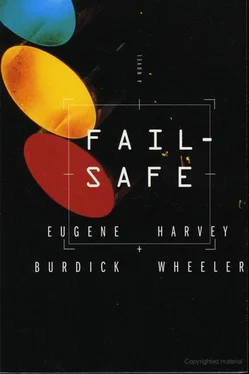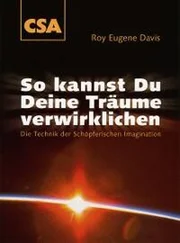The top line of the plan said: “Target: Moscow.” The second line said “Approach and penetration,” and described the altitude and speeds at which they were to fly. No. 6 plane was to take the lead. There were detailed instructions on what to do under varying conditions of fighter plane, missile, and antiaircraft attack.
On another line there were instructions as to bomb placement and settings. Under optimum conditions twelve bombs would be laid symmetrically over Moscow to explode at an altitude of 5,000 feet, Vindicators to bomb from an altitude of 60,000 feet.
In some unguarded and unclassified part of Grady’s mind there was a stunning montage of old motion pictures of bombs exploding at Eniwetok and Los Alamos and Bikini. The twelve great fireballs would gently touch and then feeding upon one another would gradually mold into a huge shuddering second-long unbearable white and heloid shimmer of pure heat. Deliberately, and aware that this vision was part sensual. Grady snapped off the picture. Thomas’ large cool blue eyes were looking at him.
“Do you want to come up on the TBS, sir?” Thomas said.
The TBS was a very low-powered radio which would carry only a few miles and was designed for communication between the planes in the group. Its signals were deliberately designed so that they could not be heard beyond a short radius.
“Just a minute, Thomas,” Grady said. He felt a strong necessity to do something more but was not dear what. A dread sense of lonely helplessness engulfed him. He knew there was only one explanation for his jammed radio and the “go” order on his Fail-Safe box: the Russians had started an attack. Further hesitation might play into Russian hands. He must follow his orders. This was what all his years of training had been about. No time now for doubt& He shook his head clear.
Grady looked into the eyes of the two strangers-the two magnificent technicians who might have been hundreds of other anonymous experts. Behind his mask he licked his lips. The four eyes rested lightly on him. They were without accusation. He imagined them to be burning with certitude, glowing with an innocent assurance. Indeed, why shouldn’t they be? The machines were with them. Somehow, in a way he could not understand, the four cool eyes soothed the nerve in Grady’s mind. He felt the surety of command flow back into him. When he spoke, his voice was for the first time his own and it was confident.
“Switch on the TBS, Thomas,” Grady said. With utter confidence he picked up the microphone and began to give penetration orders to the group.
There was a sergeant standing at the door of the conference room. He saluted Black as he approached.
“General, they have moved the conference to the Big Board room,” the sergeant said. He shrugged before Black asked the question. “I don’t know why, General. Scuttlebutt is that the Secretary of Defense is going to be there. That draws the flies, so they needed more room.”
Black smiled at the ramrod-straight sergeant’s jazzy lingo (probably a college boy “doing his time"), turned and almost bumped into General Stark. Stark had heard the sergeant. The two men started off for the elevator which would drop them down into the suspended concrete cube hundreds of feet below the Pentagon.
“I think Swenson wants to see Wilcox in action,” Stark said. “I hear that he doesn’t think Wilcox was the best choice for SecArmy, so he may be along to roast him a bit.”
“Maybe,” Black said, but he doubted it. Swenson would size up a new man but not roast him.
The. briefing was for Wilcox, the new Secretary of the Army, but beyond that Black did not try to follow Stark’s logic. Stark was a contemporary of Black’s, they were both young generals on the way up, but they were very different. Stark had made his way politically.
He was quick, but he relied on the brilliance of others to form his career. Black had concluded that Stark would have made general on his own talents, but he enjoyed the Machiavellian role. He traded in gossip, inside dope, and a prescience for what would happen in the future. Stark’s being political was not because of laziness or doubts of his own ability. Indeed he worked with great energy and had ability, but he loved the intricacy of personality conflict, was fascinated with the struggle between powerful men. Had he been dull, he would have been a superb manager of prize fighters. Being brilliant, he was a manager of men with ideas. Stark had discovered Groteschele and had managed his career beautifully. As Groteschele became famous Stark became a general officer.
“I read your memo on counterforce credibility the other day,” Stark said to Black. He paused. “I don’t think Groteschele is going to discuss that today.”
Black nodded. It was Stark’s way of requesting that a subject be ruled off-limits. He was meticulous in mentioning these informal limitations. Stark played a hard and very tough game, but he played by the rules. Once when he was a chicken colonel a classmate had leaked an item to Drew Pearson. Stark, Black realized, was really morally outraged. He had systematically and with the certitude of a Torquemada broken the colonel’s career.
“O.K., but what I said in the memo about credibility still holds,” Black said. “It’s damned nonsense to spend billions of dollars to develop a ‘military posture’ which might or might not be credible to the Russians. Who needs more muscle now? Neither side. It gets down to a guess in a psychological game, Stark. This thing of piling bombs on bombs and missiles on missiles when we both have a capacity to overkill after surviving a first strike is just silly.”
“All right already, O.K., O.K.,” Stark said and laughed. “But let’s don’t argue it today.”
“Not in front of the Big Brass,” Black said bluntly.
“Oh, my God, Blackie, you’re so damned hard-nosed,” Stark said.
They smiled at one another. The ground rules for the day had been laid down.
The Big Board room was dominated by the huge illuminated board which occupied an entire wall. The room had the same information-receiving capacity as the War Room at Omaha, but it lacked the array of desk-consoles. This was a room where the Joint Chiefs of Staff and the Secretary of Defense would gather in case of war. They would make decisions which would be implemented by other centers around the world. This was a room for strategy. Omaha, and all its counterparts, was a place for tactics. This was the room where the decisions were made. They were carried out elsewhere.
The Big Board room showed its character. It was a mixture of the executive suite and a military headquarters. Stark and Black were early and the technicians were testing the Big Board. In a random casual way they ran over various systems, cut in on streams of information, threw various projections onto the screen. At the moment, it was tuned in only to the SPADATS system, a shorthand phrase for “space data analysis.” The headquarters for SPADATS was located in Colorado Springs, but the information was projected onto the Pentagon screen with a clarity that was uncanny. As General Black watched, SPADATS switched to a Samos III satellite orbiting high in the stratosphere. Words began to crawl across the bottom of the board.
“SAMOS III #15 is moving 20,000 miles an hour, 800 miles above the earth, and has just been instructed to commence photographing the transmitting pictures,” the words said. “It is making a routine scan of a part of Russia which includes a Soviet ICBM site. Selective discrimination follows.”
The screen dissolved and then hardened up. The picture was different from the ordinary Mercator projection. This was an actual picture of a vast reach of land and lacked the hard lines of longitude and latitude. There was a range of mountains, black on one side, for it was dusk and the eastern side of the range was in shadow. There was the great twisting course of a river and the countless smaller tributaries that flowed into it. The rest of the landscape, seen from so high up, was brown and featureless, bathed in the soft magenta of sunset. In some parts of the screen there were great white clouds and Black estimated that the largest of them was actually a storm front over two hundred miles long.
Читать дальше











